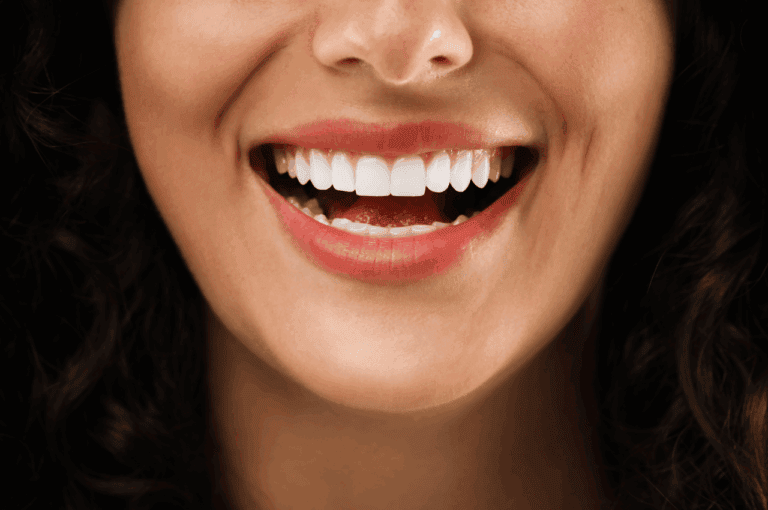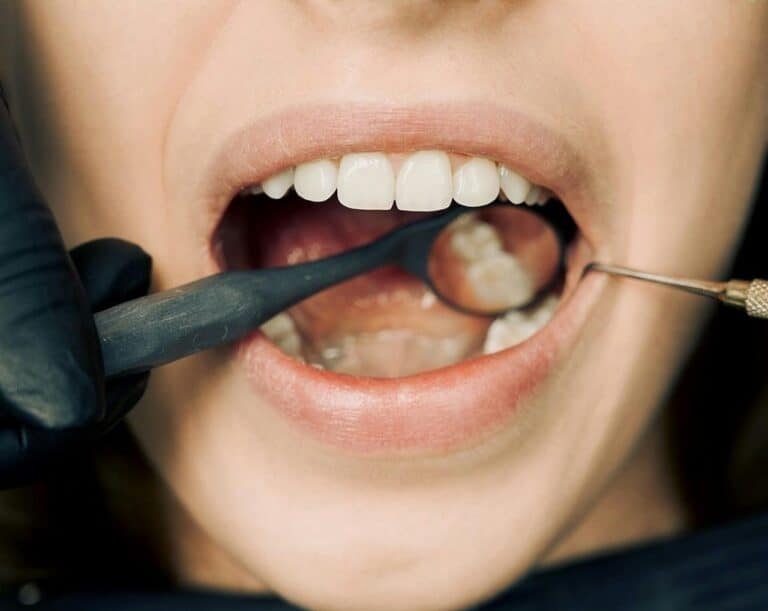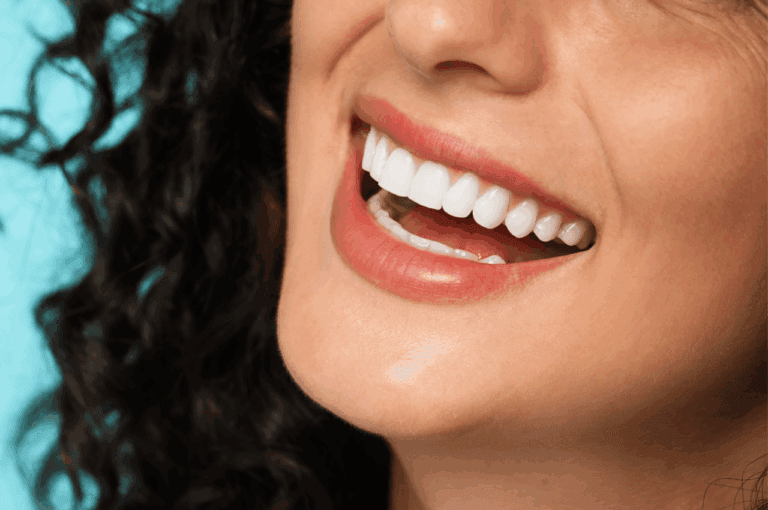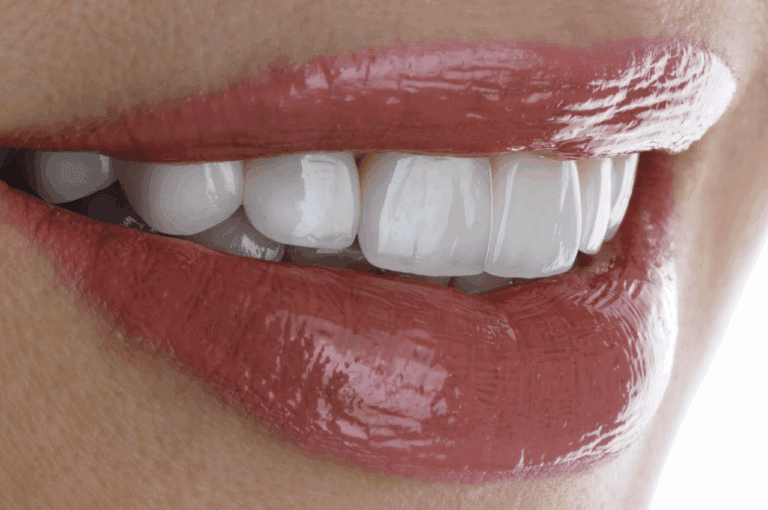Many people come to Long Island Veneers hoping to achieve a perfectly even, radiant smile. Veneers are a popular solution for masking dental imperfections and transforming teeth. However, these thin porcelain or ceramic shells are not suitable for everyone.
If you are thinking about cosmetic dental work, understanding your candidacy is essential. Not every dental situation or lifestyle fits the requirements for veneers. We want to help you recognize which factors could make you a poor candidate for dental veneers, and guide you toward making an informed choice.
Key Takeaways
- Candidacy evaluation: Not everyone is a good candidate for dental veneers, and thorough screening is required for your safety and success.
- Oral health requirements: Healthy gum tissue and stable tooth structures are necessary before you can consider veneers.
- Underlying dental issues: Severe tooth decay, gum disease, and certain bite problems often disqualify patients from veneer treatment.
- Lifestyle factors: Patients who grind their teeth or have habits that can damage veneers may not be suitable candidates.
- Commitment to aftercare: Proper daily care and regular dental visits are mandatory to maintain veneers, so commitment is essential.
- Alternative treatments: Other cosmetic or restorative dental options are available for those who should not get veneers.
- Consultation process: An in-person evaluation at Long Island Veneers will determine your eligibility and the best way forward.

Understanding Veneers: An Overview
Veneers offer a cosmetic solution to address various dental flaws, including chips, stains, minor misalignments, and size discrepancies. These custom-made shells bond to the front surfaces of teeth, creating an instantly improved appearance.
Veneers are made from porcelain or composite resin. Each material has its benefits and suitable use cases. The placement process requires careful preparation, including removing a small amount of natural enamel.
Although the cosmetic results can be dramatic, veneers are an irreversible procedure. Not every dental patient benefits from this solution, especially if underlying oral health concerns exist.
Who Are Veneers Best For?
The best candidates for veneers have healthy teeth and gums, with only minor imperfections that do not require extensive restoration. If you want to correct color, shape, or mild misalignment without orthodontics or crowns, veneers may be an option.
Certain lifestyle factors and oral hygiene practices also improve the likelihood of a good result. Reliable daily care and regular dental checkups are essential for maintaining an attractive and functional smile. We encourage you to completesee if you’re a good candidate by completing our veeners quiz.
Key Reasons Some Patients Should Not Get Veneers
Before proceeding with veneers, it is important to identify reasons why you might not qualify for this cosmetic treatment. Below, we outline some of the core scenarios and dental health issues that may make veneers inappropriate for you.
Active Gum Disease or Poor Gum Health
Healthy gums provide foundational support for your teeth and any restoration placed over them. If you have gum disease, ranging from mild gingivitis to advanced periodontitis, you are not an ideal candidate for veneers.
Gum inflammation and infection weaken the stability of teeth, leading to increased risks during and after treatment. Placing veneers on teeth with unhealthy gums can cause uneven results, increased sensitivity, and risk of failure.
At Long Island Veneers, our priority is to address any periodontal concerns before proceeding with cosmetic work. You may need thorough gum therapy or other treatments to restore oral health before being considered for veneers.
Significant Tooth Decay or Weakened Tooth Structure
Severe tooth decay undermines the structural integrity of the tooth. Veneers require a stable, sound surface upon which to bond securely.
If your teeth have large cavities, active decay, or significant previous restorations such as multiple fillings, you are unlikely to qualify. Placing veneers over unhealthy or weak teeth can result in premature failure, pain, or the need for future dental work.
Our team frequently recommends correcting all active decay and evaluating the strength of the tooth before considering veneers. In some cases, more protective options such as dental crowns may prove more appropriate.
Bruxism: Teeth Grinding and Clenching
Patients who habitually grind or clench their teeth (known as bruxism) may not be ideal candidates for veneers. This behavior exerts excessive pressure on natural teeth and restorations alike.
Veneer materials, while durable, can crack or chip under continual force from grinding. This increases the risk of breakage, additional dental procedures, and ongoing expense.
Management of bruxism, through occlusal guards or stress reduction techniques, should occur before cosmetic treatment. Even then, the suitability of veneers depends on your individual case and your ability to avoid damaging habits.
Insufficient Tooth Enamel
Veneers bond directly to the outer layer of tooth enamel. If you have uneven, eroded, or very thin enamel, you may not be an appropriate candidate.
Without enough enamel, achieving a secure, long-lasting attachment is challenging. Veneers may not adhere properly or could come loose, resulting in unsatisfactory outcomes.
Our assessment will include a careful examination of enamel quality. In some cases, alternative treatments or minimally invasive cosmetic options may be more suitable.
Unmanaged Poor Oral Hygiene
Patients must commit to excellent oral hygiene after getting veneers. If you struggle to care for your natural teeth, veneers will not solve underlying problems.
Neglecting daily brushing, flossing, and routine dental visits leads to decay and gum issues that can compromise even the best-placed veneers. Candidates for veneers should demonstrate reliable, long-term oral hygiene before and after placement.
Age and Developing Teeth
Veneers are unsuitable for children or teens because their teeth and jaws are still developing. The changing position and size of teeth during development can lead to poor veneer fit and appearance.
In general, veneers are reserved for adults with stable, fully erupted teeth. We carefully consider age and dental maturity during the assessment process.
Bite Problems and Malocclusion
Not everyone has a bite that can accommodate veneers comfortably or safely. Severe crookedness, crossbites, underbites, or overbites can place extra pressure on veneers and lead to complications.
If you have significant bite misalignment, orthodontic treatment may be necessary before considering cosmetic procedures. Our Long Island office often works closely with orthodontists to coordinate safe and satisfying treatment plans.
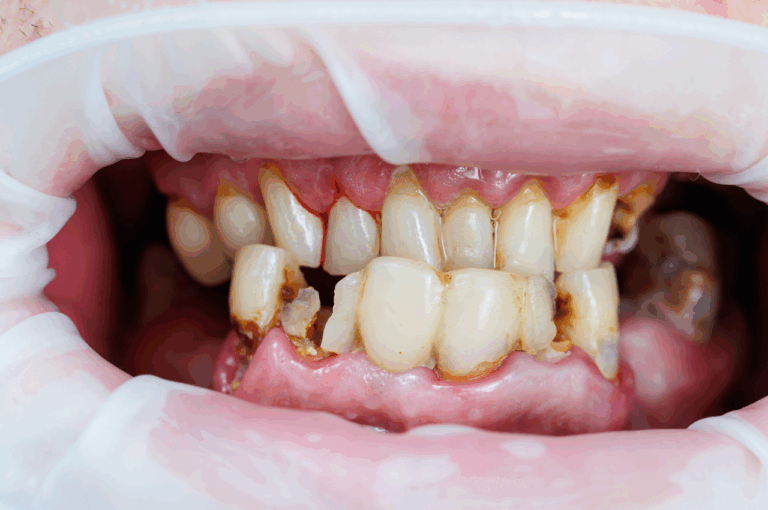
List: Common Reasons That Disqualify Patients From Getting Veneers
Some dental and lifestyle circumstances make veneers a poor choice. Here are the most frequent issues that disqualify patients at our practice:
- Active gum disease: Any level of untreated gum disease poses risks for veneer placement and can result in unsatisfactory outcomes.
- Severe tooth decay or damaged teeth: Teeth that are extensively decayed, weak, or broken down cannot support veneers reliably.
- Uncontrolled bruxism: Habitual teeth grinding or clenching increases the likelihood of veneer damage, such as chips or cracks.
- Inadequate enamel: Thin, worn, or missing enamel does not provide the right foundation for bonding veneers.
- Poor oral hygiene habits: Inconsistent brushing, flossing, and dental care increase the risks of complications after veneer placement.
- Developing or unstable teeth: Children and teenagers with growing teeth are generally not candidates, as alignment and size can change.
Recognizing these factors early helps our team guide you toward better solutions for your dental health and smile goals.
Patients With Unrealistic Expectations
When considering a cosmetic procedure, it is important to have realistic goals. Veneers can dramatically improve the appearance of teeth, but they do not correct every dental health or structural issue.
If you expect veneers to provide perfect function, cover severe misalignment, or replace missing teeth, you may be disappointed by the outcome. We communicate openly with every patient at Long Island Veneers about the possibilities and limitations of veneers.
Patients Who Cannot Commit to Maintenance
Veneers require ongoing care. Failure to brush, floss, or attend regular dental visits increases the risk of decay, staining, and veneer failure.
To keep your results beautiful and lasting, you must maintain excellent oral hygiene and protect your teeth from damage. If you cannot commit to these essential maintenance steps, another treatment might be a better fit. Review our aftercare recommendations to see if you can commit to the responsibility.
Health Conditions That May Impact Veneer Candidacy
Your overall health can play a role in your eligibility for veneers. Some medical conditions or medications could complicate dental treatment or healing.
For example, systemic illnesses that affect healing (such as uncontrolled diabetes or autoimmune conditions) may increase the risk of complications. Certain medications can cause dry mouth, affecting natural teeth and restoration longevity.
We always ask about your full medical history during consultation, making sure you are safe and you get the best outcome possible.
Alternatives for Those Who Should Not Get Veneers
For patients who are not appropriate candidates for veneers, other cosmetic dentistry and restorative options are available. Your smile goals are still attainable, and our cosmetic dentist can help you find a suitable treatment plan.
Teeth Whitening
If stains or discoloration are your primary concern, our teeth whitening procedure offers a non-invasive alternative. Professional whitening brightens natural teeth without altering their structure.
Whitening is ideal for those who want a quicker, reversible treatment without the use of restorations. Maintenance is simple, though touch-ups may be needed over time.
Dental Bonding
Dental bonding uses tooth-colored composites to repair chips, small gaps, and surface flaws. Bonding preserves the majority of your natural tooth structure and is reversible in many cases.
When deciding between bonding and veneers, bonding isn’t as durable but is a good choice for minor improvements and requires minimal preparation.
Orthodontic Treatment
If your primary issue is misalignment or bite discrepancies, orthodontics such as clear aligners or braces may be a better solution. These treatments address the foundation of tooth arrangement, leading to improved function and appearance.
Orthodontics are suitable for adults and teens, and outcomes are generally long-lasting with proper retainer use.
Dental Crowns
For teeth that are too damaged or decayed to support veneers, dental crowns provide full coverage protection. Crowns restore both form and function and may be made from various durable materials.
In the comparison of veneers and crowns, crowns cover the entire tooth, making them essential when a tooth has major structural damage.
Removable and Implant-Based Options
If multiple teeth are missing or cannot be saved, partial dentures or our dental implants can restore your smile. These solutions address function and aesthetics, and our team discusses all available options during your consultation.
If veneers are not right for you, rest assured there are proven alternatives to achieve a healthy, confident smile.
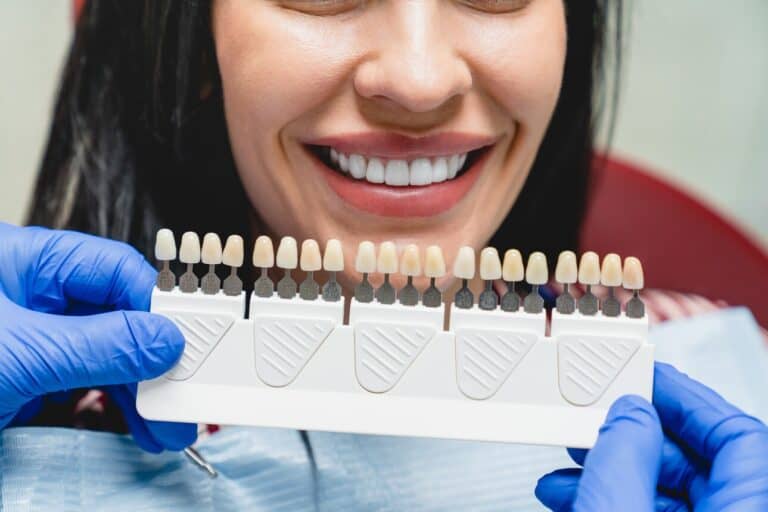
How We Determine Veneer Eligibility at Our Practice
Every patient receives an individualized assessment at Long Island Veneers. Our evaluation combines a thorough dental examination, advanced imaging, and a review of your dental and general health history.
During your consultation, we:
- Examine your teeth, enamel, and gum health.
- Assess your bite and look for signs of tooth wear or bruxism.
- Discuss your goals and expectations for cosmetic dental procedures.
- Review your oral hygiene habits and commitment to care.
- Address any underlying problems, such as decay or gum disease, before moving forward.
We work with you in an open and supportive way to identify the safest and most effective path to your smile goals.
What to Do If You Are Not a Candidate
Discovering that you are not a good candidate for veneers may feel disappointing, but it opens the possibility for better-suited treatments. Our team takes the time to explain your options and answer your questions.
In many cases, addressing underlying dental health problems returns you to eligibility status in the future. Periodontal therapy, orthodontics, or restorative treatment may be stepping stones toward achieving your ideal smile.
If veneers will not deliver the safest or most satisfying outcome, we are happy to guide you through the other cosmetic or restorative avenues available in our practice.
Frequently Asked Questions About Veneer Candidacy
Many patients want to learn more about veneer requirements before scheduling a visit. Some of our most common veneer candidacy questions include:
Is it possible to fix gum disease and then get veneers? In many cases, yes. Once gum health is restored and tissues are stable, cosmetic procedures such as veneers become possible.
Can veneers go over old fillings or existing restorations? Veneers can sometimes cover teeth with small fillings, but large restorations reduce the likelihood of success.
Are there temporary veneers for testing before committing? Some patients benefit from trial or provisional veneers to preview results before permanent placement.
How long should I wait after other dental procedures? Healing time depends on the type of treatment. We recommend waiting until your mouth is fully healthy before proceeding.
Reimagining Your Smile: Take the Next Step
Deciding whether you should get veneers is about more than cosmetic goals. It starts with understanding your oral health, personal habits, and expectations. At Long Island Veneers, we place your safety and satisfaction at the center of every recommendation.
If you are not a good fit for veneers, you still have cosmetic options. We are committed to helping you achieve a smile that is healthy, comfortable, and beautiful. Knowing when to say “no” to veneers helps avoid disappointment, complications, and unnecessary expense.
Schedule a personalized consultation at Long Island Veneers to discover the best plan for your dental needs. Whether you are ready for veneers or exploring alternative treatments, our team is here to guide you with skill and compassion. Your journey to a confident smile begins with the right information and an experienced partner by your side.

